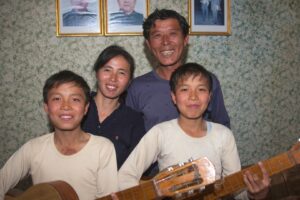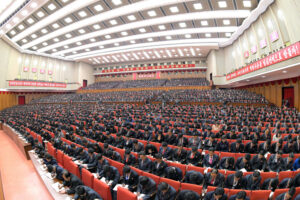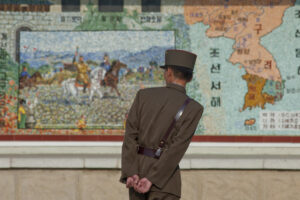The ascendance of Kim Jong Il to the North Korean leadership was accompanied by the introduction of the “military first," or songun, policy. The slogan implied that from then on, the life of society had to be subject to the interests of the army.
It was claimed that in conditions where international socialism had collapsed, the DPRK was left on its own, surrounded by enemies whose ultimate dream was to destroy the People's Korea. The army, therefore, had to stay vigilant and be ready to fight the aggressors, with the full support of the nation.
The ascendance of Kim Jong Il to the North Korean leadership was accompanied by the introduction of the “military first," or songun, policy. The slogan implied that from then on, the life of society had to be subject to the interests of the army.
It was claimed that in conditions where international socialism had collapsed, the DPRK was left on its own, surrounded by enemies whose ultimate dream was to destroy the People's Korea. The army, therefore, had to stay vigilant and be ready to fight the aggressors, with the full support of the nation.
Become a member for less than $4 per week.
Unlimited access to all of NK News: reporting, investigations, analysis
The NK News Daily Update, an email newsletter to keep you in the loop
Searchable archive of all content, photo galleries, special columns
Contact NK News reporters with tips or requests for reporting
Get unlimited access to all NK News content, including original reporting, investigations, and analyses by our team of DPRK experts.
Subscribe now
All major cards accepted. No commitments – you can cancel any time.










